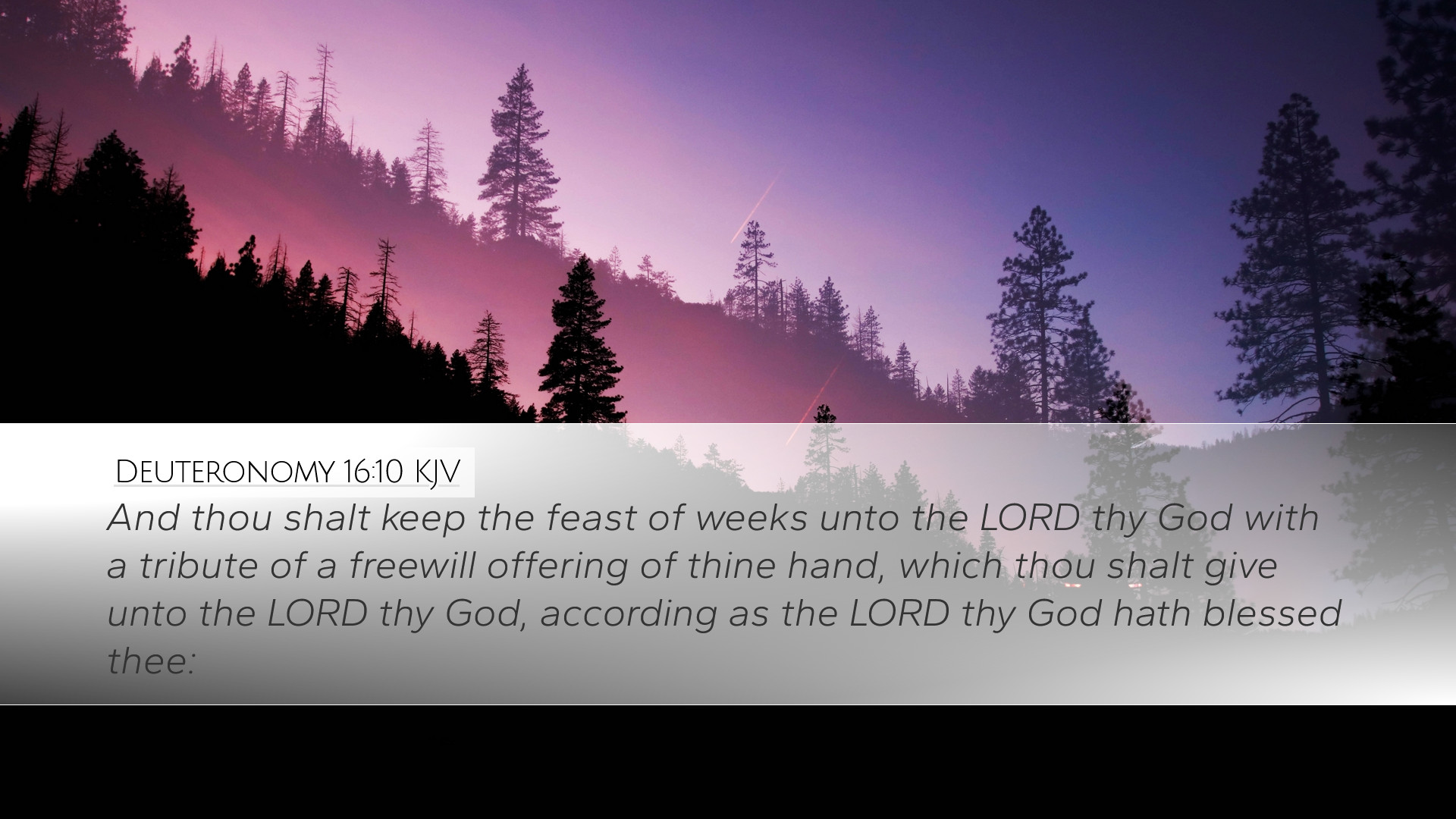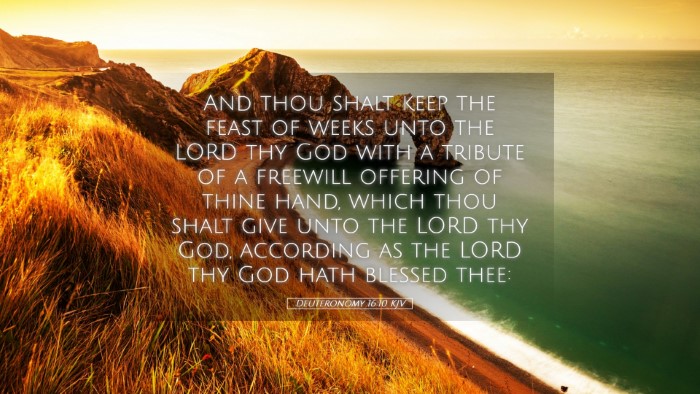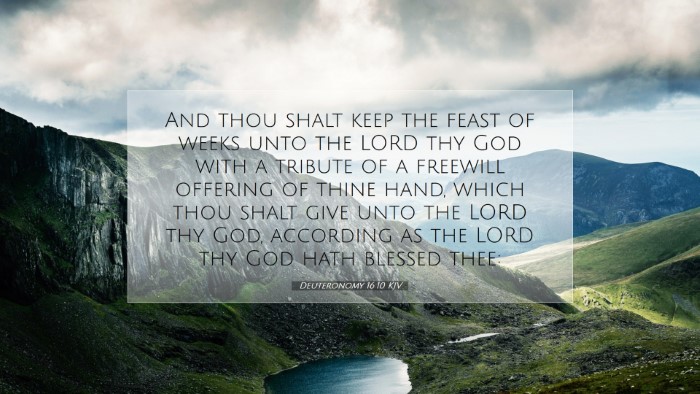Commentary on Deuteronomy 16:10
Verse: "And you shall keep the Feast of Weeks to the LORD your God with the tribute of a freewill offering from your hand, which you shall give as the LORD your God blesses you."
Introduction
This verse addresses the observance of the Feast of Weeks, also known as Pentecost, which follows the Passover and represents a key event in the agricultural calendar of ancient Israel. It not only serves as a time of thanksgiving for the harvest but also as an occasion to offer voluntary contributions to God, reflecting one's appreciation for His blessings.
Theological Significance
The Feast of Weeks gains importance within the broader theological context of Israel's covenant relationship with God. The act of offering contributions symbolizes the response of gratitude and acknowledgment of God's providence in their lives.
1. Divine Command and Human Response
Albert Barnes emphasizes that this feast is a divine institution, and by participating in it, the Israelites acknowledge God's sovereignty over their lives. The directive to present a freewill offering instills in the worshiper a spirit of willingness and joy, embodying a right attitude towards giving.
2. Recognition of God’s Blessings
Matthew Henry reflects on the importance of recognizing and responding to God's blessings. This offering is not merely a transaction but a heartfelt expression of gratitude. It harmonizes the internal state of the believer with the external act of giving, thus fostering a deeper relationship with the Almighty.
3. Agricultural Context
Adam Clarke draws attention to the agricultural implications of the feast, noting it occurs at the culmination of the grain harvest. This highlights both the physical sustenance provided by God and the spiritual sustenance found in obedience to His commands. The timing of the feast ensures that the community collectively acknowledges God's provision.
Applications for Today
For pastors, students, theologians, and Bible scholars, Deuteronomy 16:10 serves as a reminder of the principles of stewardship and thanksgiving in their own lives and ministries.
1. The Heart of Giving
Modern interpretations can benefit from the understanding that giving is an act of worship. Like the Israelites, believers today are called to give not out of obligation, but with a spirit of generosity and gratitude.
2. Celebrating God’s Provision
This verse encourages the faithful to set aside time to celebrate and ponder the many blessings in their lives. For congregations, creating spaces for such celebrations can reinforce community bonds and cultivate a culture of thankfulness.
3. The Role of Festivals
The observance of festivals, as highlighted in this verse, can serve today’s believers as a structured opportunity for reflection, worship, and community. Churches can integrate feasting and festivals into their calendar as moments to celebrate God’s faithfulness.
Conclusion
Deuteronomy 16:10 encapsulates the essence of gratitude towards God through meaningful acts of worship and community celebration. By engaging with this scripture, we find rich insights into the nature of giving, the importance of celebrating God’s provisions, and the heart behind our offerings. Each time we heed God’s commands regarding our resources, we reinforce our commitment to a covenant relationship defined by reciprocity and love.


